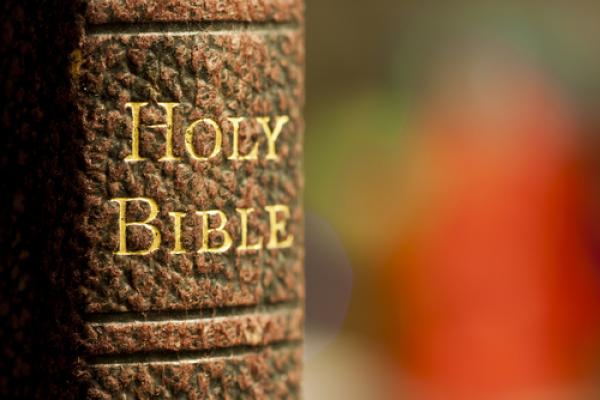After reading my post about Randy Wolford, the snake-handling pastor, died from a venomous snakebite, fellow God's Politics blogger Tim Suttle sent me a link to his own post on the subject. Suttle’s angle was different, and I found it fascinating.
Basically, he contends that the verses in Mark that Wolford and others use to justify handling snakes as an act of worship (among other bizarre practices) should not ever have made it into the Bible to begin with. His article cites what he calls a “nerdy academic journal article” from Bible scholar Robert H. Stein. In it, Stein notes a few reasons why the text in Mark chapter 16 beyond verse 8 should never have been included in the Bible.
First, there have been older copies of the manuscripts from which Mark was produced that stop at Mark 16:8. In addition, there’s the historical agreement among scholars that scribes (the guys who copied the texts by hand) did have a propensity for adding to the documents they copied but seldom, if ever, deleted anything. There’s also the fact that ancient scholars whose commentaries on Mark have been found do not mention these verses at all, as well as the agreement among many Biblical scholars that the tone of those verse suggests a different author wrote them.
I think this kind of Biblical scholarship is intriguing, though I expect others see it as a threat. I don’t know about anyone else, but if I claim to base much of my life on the teachings found in a handful of ancient books, I want to know as much about who wrote them and where they came from as possible. But for those who ascribe to a literal interpretation of scripture, I wonder what these kinds of arguments do to their faith, or at least their understanding of what “The Bible” is.
Do they know that the Gospel of John (a favorite among most Evangelicals I know) and the book of Revelation (another Evangelical favorite) almost didn’t make it into the Biblical canon we know today? Ancient theologians such as Origen challenged the use of other Biblical books such as Hebrews, James, 2 Peter, 2 John and 3 John as well. Some orthodox churches still do not recognize Revelation as a legitimate part of the Bible.
Meanwhile some Catholics and Orthodox churches use the Apocrypha as part of the Bible, though it isn’t recognized as such my most Protestants. In fact, the word “Apocrypha” has inherent negative connotations, meaning “spurious” or “false.”
Then there are the Dead Sea Scrolls, valued by different groups as holy or sacrilegious, depending on whom you ask.
There are those who believe there are secret codes embedded in the book of Exodus and elsewhere, while others claim this is heresy. And even those who claim to believe in Biblical literalism have scads of caveats when it comes to things like stoning adulterers, taking a concubine, owning slaves or keeping all of the rabbinical laws outlined in the Hebrew Scriptures.
I don’t take personal issue with a literal interpretation of scripture, in and of itself. But when that literalism is used to oppress, condemn, marginalize or even endanger or kill other God-created people, the Bible becomes a weapon of hatred and intolerance. And that, I can’t accept.
Can those who don’t interpret scripture literally use the Bible as a bludgeon against others? Of course. But the inherent lack of room for discussion, critical thought, nuance or even alternate views within the literalist camp is a setup for such abuse.
It seems to me that, if we could get beyond this notion that the Bible was some divine instruction manual to be followed to the letter, the better off we’d all be as fellow human beings, trying awkwardly, and sometimes in vain, to share an ever-shrinking planet.
Christian Piatt is an author, editor, speaker, musician and spoken word artist. He co-founded Milagro Christian Church in Pueblo, Colorado with his wife, Rev. Amy Piatt, in 2004. Christian is the creator and editor of "Banned Questions About The Bible" and "Banned Questions About Jesus." His new memoir on faith, family and parenting is called "PREGMANCY: A Dad, a Little Dude and a Due Date." For more information about Christian, visitwww.christianpiatt.com, or find him on Twitter or Facebook.
IMAGE: hfng/SHUTTERSTOCK
Got something to say about what you're reading? We value your feedback!
